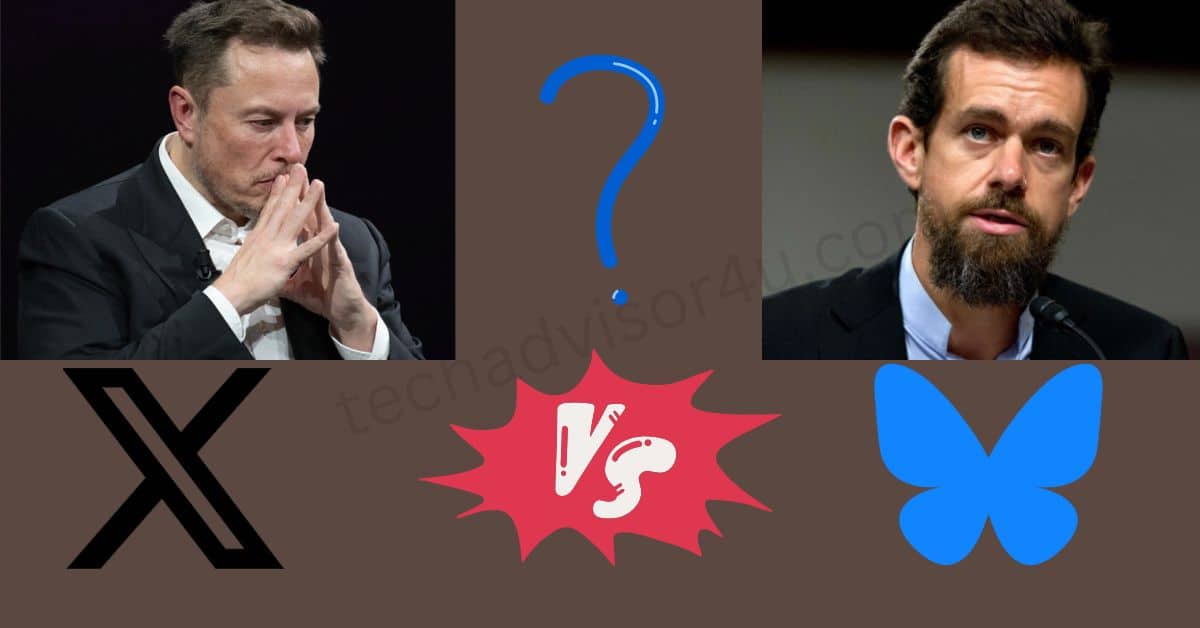Have you noticed the recent buzz around Bluesky? Millions of users are leaving X (formerly Twitter) and switching to this new social media platform. The reason? Unlike other platforms, Bluesky offers a decentralized structure that sets it apart. Today, we’ll dive into what Bluesky is all about and unpack the rivalry between Elon Musk’s X and Jack Dorsey’s Bluesky.
What is Bluesky’s social media?
Bluesky is a decentralized social media platform originally envisioned by Jack Dorsey as a project under Twitter. The platform’s goal was to create an open and decentralized protocol for social media, offering users more control over their data and content. However, Dorsey is no longer actively involved, and the platform is now led by CEO Jay Graber.
Despite being in its infancy, Bluesky has grown significantly in popularity. It operates an ad-free model, ensuring a clean, uncluttered user experience. Additionally, Bluesky does not store user data, which appeals to those concerned about privacy and data security.
Why Are People Leaving X for Bluesky?
Controversial Political Stance on X
After Donald Trump’s victory in the recent U.S. presidential election, Elon Musk openly supported Trump and took on a significant role in his administration. This move sparked debates about the platform’s neutrality, leading to mass dissatisfaction. Users who once admired X for promoting free speech and impartiality now question Musk’s motives.On the day following Trump’s victory, over 111,500 users left X, and Bluesky gained 100,000 new users—a massive milestone for the platform.
Content Moderation Concerns on X
X has faced criticism for its lenient content moderation policies, which have led to an increase in hate speech and misinformation. In contrast, Bluesky has focused on creating a safer and more controlled environment, using an invite-only system to moderate its user base during its early phases.Bluesky’s Decentralization Advantage
While X remains centralized, Bluesky is working towards a decentralized structure, giving users control over how their content is shared and consumed. This feature resonates strongly with those seeking an alternative to traditional, centralized platforms.Brazilian Exodus
In Brazil, Bluesky gained traction when X was temporarily banned due to a legal feud between Musk and a Brazilian judge over content moderation policies. Many Brazilian users migrated to Bluesky during this period, contributing significantly to its user base.
Key Features That Set Bluesky Apart
- Ad-Free Experience: Unlike X, Bluesky does not show ads, creating a distraction-free platform.
- No Subscription Fees: Bluesky offers its services for free, unlike X’s paid subscriptions.
- “Old Twitter” Feel: Bluesky brings back the simplicity of early Twitter with a reverse chronological timeline and a focus on user control.
- Privacy and Safety: The platform avoids data collection and ensures a more controlled user experience.
Challenges Bluesky Faces
Despite its rapid growth, Bluesky has its share of challenges:
- Scaling Moderation: With its user base tripling in the last three months, the platform has seen a rise in spam and harmful content. Its small team of moderators is struggling to keep up.
- Decentralization Journey: While the goal is to become fully decentralized, Bluesky currently relies on a centralized structure, raising questions about its future scalability.
- Competing with Giants: With X’s 259 million daily active users and Threads’ 275 million monthly users, Bluesky has a long way to go.
Bluesky’s Rapid Rise
According to CEO Jay Graber, Bluesky’s daily users increased by 119% after the U.S. elections, compared to an 8% growth for Threads and flat growth for X. The platform also secured $15 million in Series A funding, led by Blockchain Capital, to scale its operations and improve its infrastructure.
Graber shared that Bluesky’s team consists of 20 full-time employees, effectively handling a million users per employee. The platform is actively hiring to manage its growing user base and tackle operational challenges.
Conclusion: Is Bluesky the Future of Social Media?
Although Bluesky is still smaller than X and Threads, it has a distinct advantage due to its emphasis on user control, decentralization, and privacy. Bluesky’s growth trajectory appears promising as more users look for alternatives to centralized platforms like X.
It remains to be seen if it can maintain this momentum and emerge as a serious competitor to Musk’s X. One thing is certain, however: Bluesky has already begun to upend the social media scene, demonstrating that the struggle for dominance on social media is far from over.


1 thought on “Bluesky vs Threads: Decentralized Freedom or Meta’s Powerhouse?”
Comments are closed.